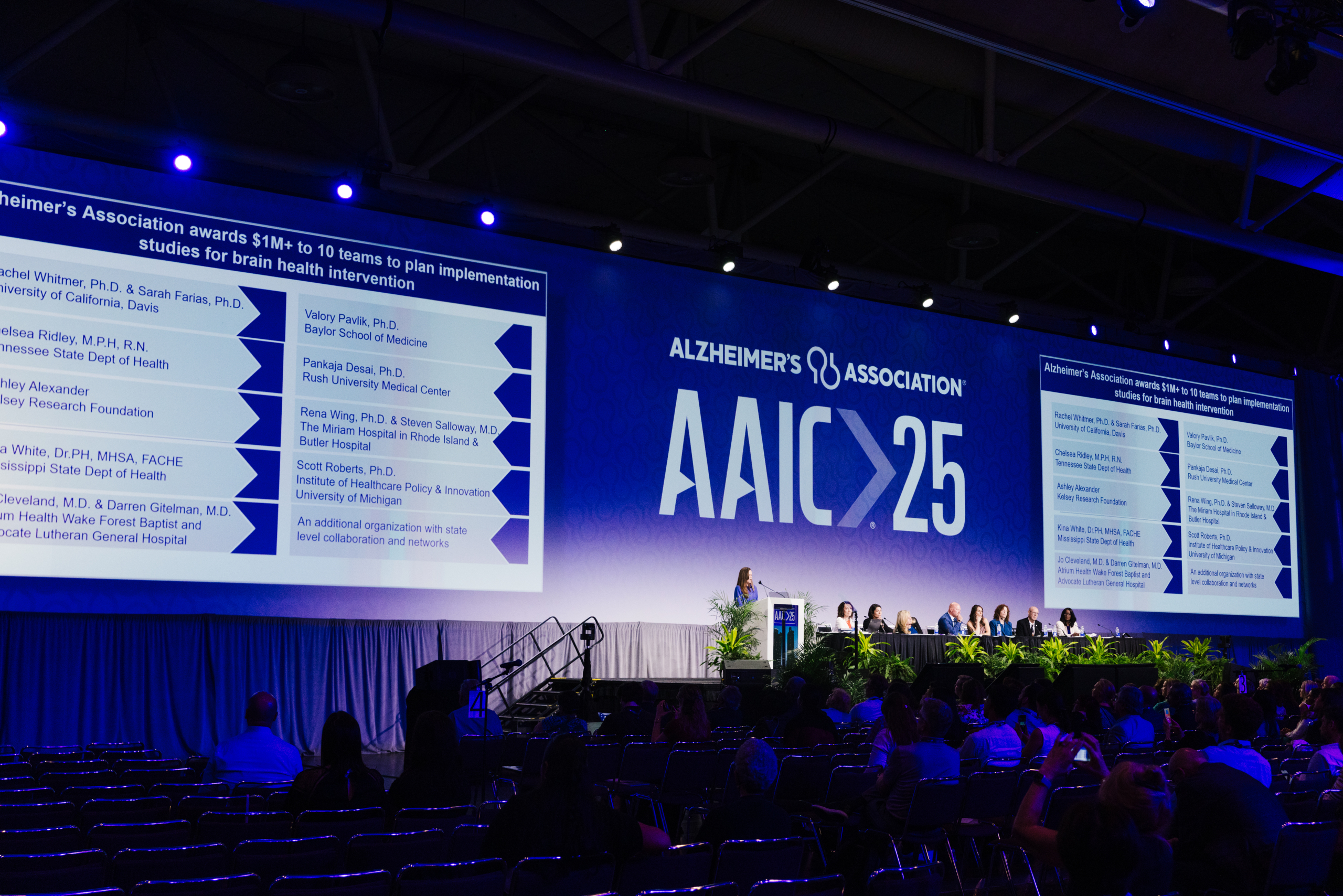RALEIGH, N.C. — Groundbreaking research presented at the Alzheimer’s Association International Conference® 2025 (AAIC®) in Toronto has significantly advanced scientific understanding of Alzheimer’s disease and other dementias, with North Carolina researchers playing a prominent role in the discoveries.
The premier annual conference attracted nearly 19,000 registered attendees and featured more than 6,400 scientific submissions from around the world. North Carolina was exceptionally well-represented, with nearly 100 presentations and posters from researchers at Duke University, East Carolina University, several University of North Carolina System campuses, North Carolina Central University, High Point University, Wake Forest University, and other research centers.
Lifestyle Interventions Show Promise in U.S. POINTER Trial
One of the most significant findings came from the U.S. POINTER clinical trial, which demonstrated that two lifestyle interventions improved cognition in older adults at risk of cognitive decline. The structured intervention with enhanced support and accountability showed superior results compared to a self-guided approach, providing protection against normal age-related decline for up to two years.
North Carolina served as one of five clinical trial locations, with the Alzheimer’s Association – Western Carolina Chapter playing a crucial role as the first trial site nationally.
“We were honored to work alongside Wake Forest University School of Medicine for this Alzheimer’s Association funded study which is a turning point on how we will approach brain health,” said Katherine Lambert, CEO of the Alzheimer’s Association – Western Carolina Chapter and US POINTER chapter lead. “The cognitive improvement found through lifestyle interventions is promising and we’re committing more research dollars to bring this clinical trial opportunity into more communities.”
New Clinical Guidelines for Blood Biomarker Testing
The Alzheimer’s Association released its first clinical practice guidelines for using blood biomarker tests to assist specialists in diagnosing Alzheimer’s disease. These evidence-based recommendations target specialists in neurology, psychiatry, geriatrics, and other fields who diagnose and evaluate cognitive impairment, providing a framework for more confident and consistent use of these diagnostic tools.
Common Drug Combinations May Slow Cognitive Decline
Research involving more than 4,500 older adults revealed that taking combinations of common medications for blood pressure, cholesterol, and diabetes may slow cognitive decline. Participants who took all three types of vascular drugs showed the greatest cognitive benefits, with test scores similar to people three years younger. Their brains also exhibited fewer signs of Alzheimer’s-related changes at autopsy.
Environmental Lead Exposure Linked to Long-Term Memory Problems
A comprehensive study of more than 600,000 people found that atmospheric lead exposure may be connected to memory problems occurring 50 years later. Researchers tracked the impact of airborne lead exposure from 1960-1974, when leaded gasoline use peaked, estimating that over 170 million Americans were exposed to high lead levels during early childhood.
Genetic Risk and Lifestyle Interventions
Decade-long data from three large international studies indicated that people with higher genetic risk for Alzheimer’s disease may benefit most from healthy lifestyle interventions. Older adults carrying the APOE4 Alzheimer’s risk gene showed greater cognitive benefits from exercise, diet, and cognitive training than non-carriers, with walking identified as the most effective intervention.
Real-World Drug Performance Matches Clinical Trials
Multiple studies presented at AAIC 2025 demonstrated that newly available anti-amyloid Alzheimer’s drugs, including lecanemab and donanemab, produced comparable or better safety profiles in real-world settings compared to controlled clinical trials, with high patient satisfaction rates.
SNAP Program Linked to Cognitive Protection
Research showed that participants in the U.S. Supplemental Nutrition Assistance Program (SNAP) experienced slower cognitive decline over 10 years compared to eligible non-participants. SNAP participants had a 0.10% slower decline in overall cognitive function, translating to an estimated two to three additional years of cognitive health.
Gender Differences in Dementia Risk Revealed
New research highlighted crucial differences between men and women regarding Alzheimer’s and dementia risk. Studies found that traumatic brain injuries were more likely to shrink dementia-related brain areas in women than men. Additionally, groundbreaking research on “chemobrain” — cognitive decline affecting about one-third of women receiving breast cancer chemotherapy — provided the first evidence connecting brain changes, inflammation, and shrinkage to memory and cognitive symptoms.
Looking Forward
“AAIC stands as a pivotal gathering for Alzheimer’s researchers and all those dedicated to ending Alzheimer’s and other dementias,” said Christine John-Fuller, executive director of the Alzheimer’s Association – Eastern North Carolina Chapter. “The research presented further shows the progress being made in this new era of hope, and we are proud of the role the N.C. research community plays in this.”
The Alzheimer’s Association International Conference serves as the world’s largest gathering of dementia researchers and continues to drive innovation in understanding, diagnosing, and treating these devastating diseases.
The Alzheimer’s Association is a worldwide voluntary health organization dedicated to Alzheimer’s care, support and research, working toward a world without Alzheimer’s and all other dementia. For more information, visit alz.org or call 800.272.3900.




